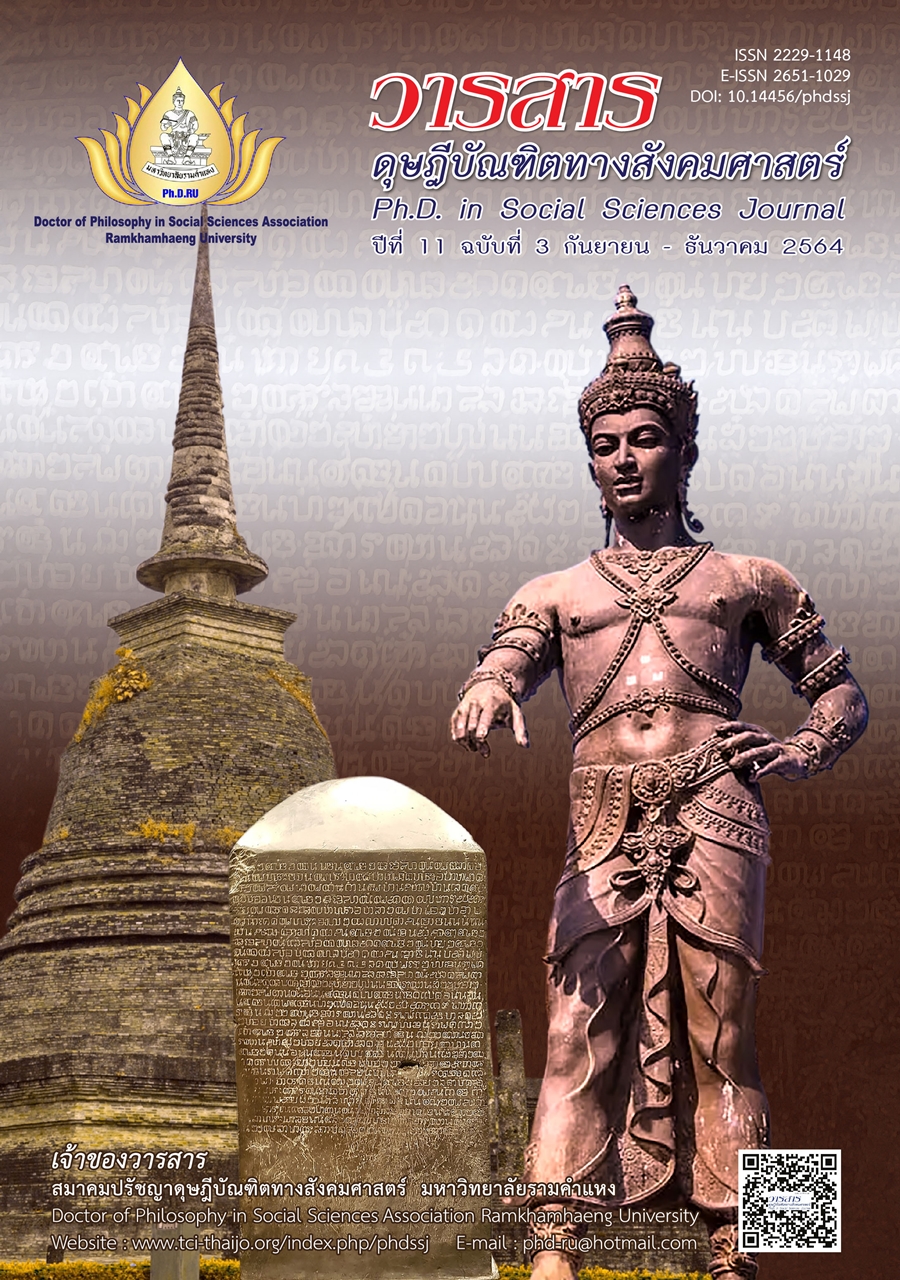New Media in Thai Modern Education
Main Article Content
Abstract
This academic article aims to analyze the new media and the modern education. The continually growth of new communication technology is highly important as the communication innovation which involves the vast global networking. This innovation also effects Thailand especially to young generation and students. This convinces the government to use new media to link all the information to support the students to increase studying skills and increase their learning achievement by integrating the “New Media” idea with the new computer technology and the communication innovation in 3 types which are tool format, software format and networking format and the constructivist theory toward learning achievement in the modern education with the belief that the learning is the procedure which proceeds inside the learner. The learner will build up all their new knowledge by analyzing their new experience in new environment or information linking to their existing knowledge.
The analysis has found that: (1) New Media effects the constructivist theory toward learning achievement in the modern education in a way that the learners’ curiosity motivate themselves to use the information from internet such as video and sound to analyze, judge and construct their own knowledge. (2) New Media relates to the constructivist theory toward learning achievement in the modern education in a way that it enhances the learners to practice and integrate their knowledge which make them think and analyze better. (3) New Media relates to the constructivist theory toward learning achievement in the modern education in a way that new media enhances the learner to develop their searching skills to analyze and evaluate information according to the learner’s aim.
Article Details
Academic articles, research articles, and book reviews in the Ph.D. in Social Sciences Journal are author’s opinions, and not the publisher’s, and is not the responsibility of the Ph.D. in Social Sciences Journal Philosophy Association, Ramkhamhaeng University. (In the case that research is done on human, the researcher has to be trained in Ethics for Doing Research on Human Training and has to produce the evidence of the training).
References
Burnett, R., & Marshall, P. D. (2003). Web theory: An introduction. Routledge.
Henrique, L. (1997). A study to define and verify a model of interactive-constructive elementary school science teaching. Unpublished Doctoral Dissertation, University of Iowa.
Kaewthep, K., & Chaikhunphon, N. (2012). New media guide to study. Parppim. [In Thai]
Manovich, L. (2001). The language of new media. The MIT Press.
Mayer, R. E. (1998). Learning strategies: An overview. Academic Press.
National Statistical office. (2016). Conclusion of survey for the using of household communication technology. Author. [In Thai]
New Media Toward in Thai Society. (2017). New media theory. Naresuan University Press. [In Thai]
Phewruangnont, C. (2016). New media and technology for mass communication. Ramkhamhaeng University Press. [In Thai]
Phumpuang, K. (2015). Creating learning activities with connectivism through social media. Liberal Arts Review, 10(19), 1-13. [In Thai]
Schmitt, T., Sims-Giddens, S., & Booth, R. (2012). Social media use in nursing education. Retrieved from https://doi.org/10.3912/OJIN.Vol17No03Man02
Siapera, E. (2012). Understanding new media. Sage.
Sritanon, N. (2011). New media regulation in the convergence era. Bangkok University Press. [In Thai]
Sumalee Chaicharroen. (2004). Constructivist theory. Khon Kaen University, Division of Education Technology. [In Thai]
Waythongkhum, Y. (2017). Innovation and Information technology for education. Ramkhamhaeng University Press. [In Thai]


